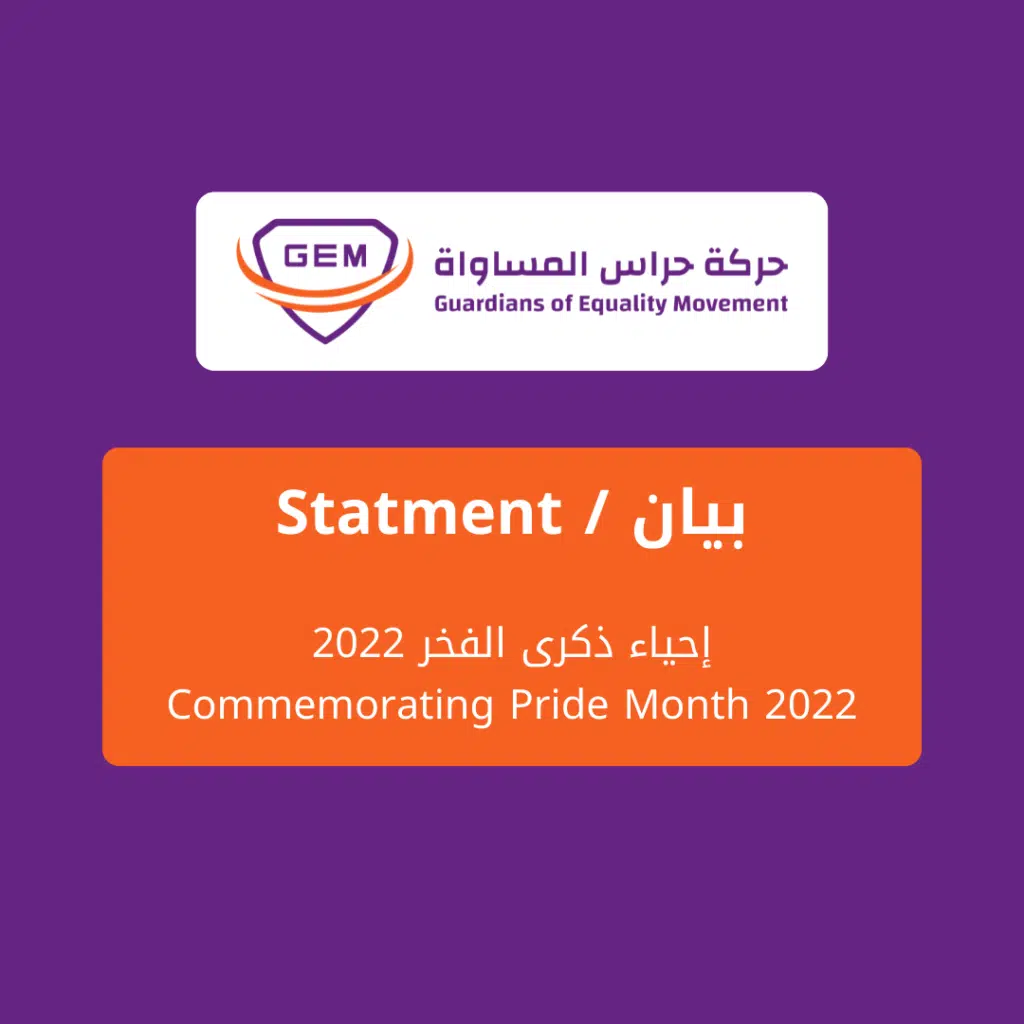Every year in June, Pride Month is celebrated to recognise the impact that lesbian, gay, bisexual, transgender, and questioning individuals have made in local, national, and international settings. This month, celebrations include pride parades, picnics, parties, workshops, symposia and concerts, and LGBTQIA+ Pride Month events attracting millions of participants worldwide. Memorials are held during this month for those members of the community who have been lost to hate crimes or passed due to lack of medical treatment.
Homophobia, stigma, and discrimination against the LGBTQIA+ community still exist globally, as is also the case in Arab countries. LGBTQIA+ are still subjected to abuse based on sexual orientation and gender identity, including torture, killing and executions, arrests under unjust laws, unequal treatment, censorship, medical abuses, discrimination in health and employment, and domestic violence. Sexual orientation and gender identity are integral aspects of ourselves and should never lead to discrimination or abuse.
The Universal Declaration of Human Rights (UDHR), adopted by the United Nations in 1948, recognised the inherent dignity and equality of inalienable rights for all family members. The UDHR sets out fundamental human rights to be universally protected where everyone is entitled to all these rights and freedoms without discrimination of race, colour, sex, language, religion, political opinion, national or social origin, property, or status.
Although the Universal Declaration is non-binding, many of its provisions enjoy such undisputed recognition as to be considered part of customary international law and therefore universally obligatory, and has a significant impact on the protection and promotion of human rights. In fact, most Arab countries – except Saudi Arabia – have ratified the Universal Declaration of Human Rights, but in some of these countries, LGBTQIA+ people still enjoy very limited rights and freedoms, and in many cases, they are exposed to various forms of abuse, bullying, discrimination and violence.
National legislations in Arab countries range between recognising some rights for LGBTQIA+, such as Jordan, Lebanon and Bahrain. Other countries criminalize consensual same-sex relationships, gender affirmation, and sex reassignment surgery such as Syria, Saudi Arabia, Qatar, and the UAE, where LGBTQIA+ may face the death penalty. Therefore, advocating for LGBTQIA+ rights and equality is still challenging under these unjust laws. Moreover, the negative role of Arab media plays an influential role in framing negative social attitudes towards Arab LGBTQIA+ communities by presenting them as crossdressers or sex-workers. We acknowledge everyone’s right to their private life and right to freedom of thought, but the media should show a positive image of the LGBTQIA+ community, including its diversity and cultural richness.
This month, we should focus more on the positive aspects that contribute to promoting LGBTQIA+ rights and allow us to have more freedom of speech and expression of identity. During Pride Month, we celebrate Arab writers and artists who contributed to queer art and shared with the world that Arab LGBTQIA+ people exist and deserve better.
GEM hopes that all LGBTQIA+ in the Arab world will have the freedom to be themselves and have the pride to speak their minds without fear of violence or intimidation, no matter what their sexual orientation or gender identity is.

